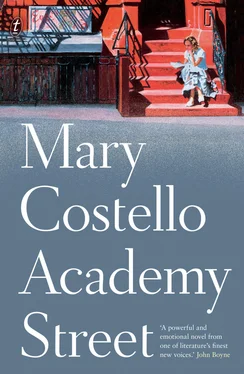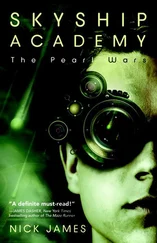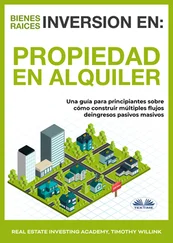Mary Costello - Academy Street
Здесь есть возможность читать онлайн «Mary Costello - Academy Street» весь текст электронной книги совершенно бесплатно (целиком полную версию без сокращений). В некоторых случаях можно слушать аудио, скачать через торрент в формате fb2 и присутствует краткое содержание. Год выпуска: 2014, Издательство: Text Publishing Company, Жанр: Современная проза, на английском языке. Описание произведения, (предисловие) а так же отзывы посетителей доступны на портале библиотеки ЛибКат.
- Название:Academy Street
- Автор:
- Издательство:Text Publishing Company
- Жанр:
- Год:2014
- ISBN:нет данных
- Рейтинг книги:3 / 5. Голосов: 1
-
Избранное:Добавить в избранное
- Отзывы:
-
Ваша оценка:
- 60
- 1
- 2
- 3
- 4
- 5
Academy Street: краткое содержание, описание и аннотация
Предлагаем к чтению аннотацию, описание, краткое содержание или предисловие (зависит от того, что написал сам автор книги «Academy Street»). Если вы не нашли необходимую информацию о книге — напишите в комментариях, мы постараемся отыскать её.
J.M. Coetzee
Academy Street This is an intimate story about unexpected gifts and unbearable losses, and the perpetual ache for belonging. It is exquisitely written and profoundly moving.
Academy Street — читать онлайн бесплатно полную книгу (весь текст) целиком
Ниже представлен текст книги, разбитый по страницам. Система сохранения места последней прочитанной страницы, позволяет с удобством читать онлайн бесплатно книгу «Academy Street», без необходимости каждый раз заново искать на чём Вы остановились. Поставьте закладку, и сможете в любой момент перейти на страницу, на которой закончили чтение.
Интервал:
Закладка:
On the platform, she stood, dazed. Out in the streets people pushed by her. She moved along the sidewalk, heat coming off the pavement. She looked up at the street numbers — she was in the 80s, far from home. She looked in gleaming shop windows, cafés, restaurants with diners outside under awnings. The sun beat down. She crossed onto quieter streets. Fine hotels, apartment buildings with doormen. She looked up at the windows. She saw, in her mind’s eye, lovers in shaded rooms, naked, spent. Emerging out onto the street later, holding hands, all loved up. All loved up. Those were the words Willa had used one time telling a story when she and Darius had returned from a vacation. There we were , she’d said, heading out for dinner, all loved up.
She turned right, crossed Third Avenue, then Second, First, York, drawn by the promise of water. She entered a park and followed the path. Families with children, young couples, old men with dogs and sorrowful eyes seeking the shade of trees. Then she was standing on the edge of the East River. Seagulls’ wings glinted in the sun. On the other side, in a blue haze, Queens. It was there he had lived. A boat passed and left behind a trail of white foam. She watched it spread and diffuse, until there was almost no trace left. Watching the swell and motion of the waves and the surf, she felt seasick. She tried not to break. She looked around. Under the still surface of the day she saw turmoil everywhere. She thought of the water that had lain quietly calm, each tiny drop, each molecule, restful, suddenly wrenched, catapulted through a metal rotary, tossed back out into the turbulent current, reeling, confounded, changed.
∼
She confessed her compulsion to Willa. They were sitting under trees in Inwood Hill Park, behind them a hill of old stone, like a quarry. They had brought a small picnic, and wine.
‘I think there’s something wrong with me. I’ve started looking at men, strange men,’ she said shyly.
Willa eyed her, beamed a smile. ‘Go on!’
She winced. ‘On the subway, in church, you know, just watching them…I can’t help myself. It’s turning into an obsession. Next I’ll be stalking them!’
‘Oh Tess, you’re just a real ripe healthy woman, that’s all!’ She gave a little smile. ‘We’ll have to find you a suitor, Miss Lohan. We’ll have to find you some gorgeous gentleman caller!’
She expected Theo to enter a field of science, or the humanities. She thought this was where his sensibilities lay. But he chose business at Fordham College. For a time he continued to live with her, before moving into a house in Harlem with a girlfriend and two friends. He took all his belongings, his records. She did not think he would ever come back. Little by little, since childhood, he had grown further from her. She wondered if he had ever searched for his father. He called her each Friday; their conversations centred on his studies and finances. Now and then he dropped by. In person he gave off an air of irritation. She felt estranged from him. She felt his resistance to being fully known by her, as if time spent together in naked silence would reveal something he could not bear. And yet, at times, she saw understanding in his eyes. When he rose to leave a softening occurred, a hesitation in his limbs. She knew then that he had gleaned the parting sickness in her. She felt the terrible tug and conflict within him and wanted to free him. In that moment she braced herself, summoned all her strength, affected an air of busyness, of a life fully engaged, and sent him on his way. Her rooms could barely endure the silence left in his wake.
No gentleman caller wooed her. Some tried, but no love materialised. She went on several hopeful dates with Priscilla’s brother-in-law, a high school teacher, a great bear of a man whose ebullience and over-eagerness to please ate up all her energy. She began to see an older man, a doctor at the hospital — a divorcé. He took her to an elegant restaurant and with a little wine inside her she felt beautiful, and in the candlelight he was not unhandsome. His manners were impeccable. He had just returned from Rome. But in his hands, in his darting eyes and self-conscious awareness of himself in the world, she sensed an otherness, felt him a stranger. She knew already he was not a fit. In her life, ever, there were only a few people who had been a fit, with whom she had felt understood. Her mother, Claire, David, Willa. In his childhood, Theo. The longing to be with them persisted, a longing so deep and eternal it must have had ancient origins.
Out in the street her doctor hailed a cab. ‘May I kiss you?’ he asked.
She smiled. ‘I haven’t been kissed in quite a while.’
‘All the more reason to kiss you then.’ He drew her to the shadows. He was a man used to getting his own way. He took her face in his hands and kissed her and paused, until she kissed him back. The kisses grew longer and with the wine and his hands moving on her back she felt herself yielding, arching into him, her body egging her on. When they drew apart he was smiling. He seemed bemused, triumphant, arrogant. He became, again, strange to her. His face did not move her. There was little in him she wanted to know.
‘Till next time, then,’ he said.
Inside the cab she could smell his cologne. She closed her eyes and laid her head back. She longed for a passionate, even outrageous, life. She pictured him naked, rutting. His hands on her, all over her, in her. Strange hands, strange eyes. And his mind, his thoughts, alien too, and so apart from hers. She opened her eyes. She could not give herself to this stranger. She would need to be known . She would need to know him too, decipher him, make unstrange his mind. She would need to be a little in love. And this man — a divorcé and a man of the world — would not wait. This was the way with men.
In the days following she tried to want him — she wanted to want him. But in her private fantasies she could not call him forth. It was David who came, always David, his face known to her, his voice tender and lonely, his mind adhered to hers. They had come together once, like planets colliding. Her body had never forgotten him, not for an instant, as if by being her first, by taking and entering and impregnating her, he had annexed her, and some twist or quirk of nature had ensured that he remain. Her Adam, her primary man, the first and foremost, the father, the one who had made his mark and against whom all others would be measured.
Frustrated, impatient, she vowed to sublimate desire. She turned to learning. She had always considered herself an unlettered woman but resolved to cultivate a life of the mind. Theo’s legacy, the fire of his passion and early curiosity, was igniting in her now. She enrolled in an evening class on Greek Mythology at the library a few blocks away on Broadway. From the start she was intoxicated. Alone, she wept for Demeter’s grief, for Prometheus’s torment as he lay bound to the rock. The gods and goddesses entered her and resonated and she was porous to every myth and odyssey, as if the ghosts of Olympus had always lain dormant in her, waiting to be resurrected. She encountered them everywhere, found them threaded through her days, in ads and logos, in films, on the signage of trucks, in the names of towns — Troy, Ithaca, Delphi Falls. Ancient Greece was all over America. On street corners she saw people descend into the subway, and felt a little shiver at their blind oblivion, had an urge to forewarn them, hand them coins, beseech them not to look back.
She relayed the tales back to Willa — each week returning with books, reading aloud passages that told of the antics of Zeus and Apollo and Aphrodite, so that Willa too was drawn in, playfully taking sides, expressing faux outrage and delight, bringing a new way of seeing to Tess.
Читать дальшеИнтервал:
Закладка:
Похожие книги на «Academy Street»
Представляем Вашему вниманию похожие книги на «Academy Street» списком для выбора. Мы отобрали схожую по названию и смыслу литературу в надежде предоставить читателям больше вариантов отыскать новые, интересные, ещё непрочитанные произведения.
Обсуждение, отзывы о книге «Academy Street» и просто собственные мнения читателей. Оставьте ваши комментарии, напишите, что Вы думаете о произведении, его смысле или главных героях. Укажите что конкретно понравилось, а что нет, и почему Вы так считаете.












